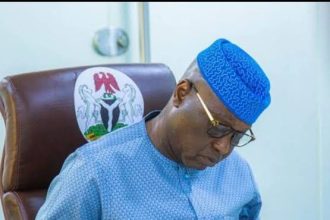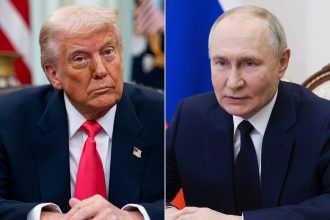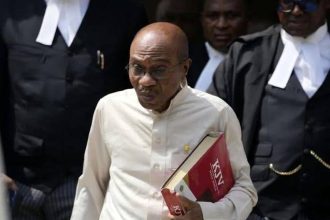Femi Adesina, the former spokesperson to ex-President Muhammadu Buhari, has shed light on why the former leader chose not to immediately remove the controversial petrol subsidy during his tenure.
In a heartfelt tribute marking Buhari’s 82nd birthday on December 17, 2024, Adesina explained that the decision was driven by Buhari’s deep concern for the “ordinary” Nigerians who would be most affected by such a move.
Adesina, who served as Buhari’s official mouthpiece throughout his presidency, emphasized that the former president was always guided by his love for the poor and underprivileged.
He described Buhari as an “ore mekunu,” a Yoruba phrase meaning “friend of the poor,” highlighting the president’s unwavering commitment to safeguarding the welfare of everyday Nigerians, particularly during tough economic times.
According to Adesina, the Buhari administration was well aware of the substantial financial drain caused by the petrol subsidy, which consumed large portions of the country’s resources.
However, Buhari resisted its immediate removal, understanding that it would disproportionately impact the most vulnerable segments of society.
“The Big Elephant in the room: the removal of fuel subsidy. Did you think the Government didn’t know that the money-guzzling monster had to be slain? It knew,” Adesina wrote, referring to the ongoing debate surrounding the subsidy.
He continued, “But who ensured that subsidies remained as long as they did? Buhari. And why? For the people, the ordinary people.”
Adesina recalled how Buhari, during the global COVID-19 lockdown in 2020, instructed the then Minister of Finance, Zainab Ahmed, to ensure the timely payment of salaries and pensions to workers, recognizing the financial strain many Nigerians were facing during the pandemic.
This, Adesina said, was further evidence of Buhari’s commitment to the welfare of the nation’s citizens, especially the working class.
Adesina noted that Buhari’s argument against removing the subsidy was simple: “When oil sold for at least $100 per barrel, rising even to $140 per barrel, what did the ordinary people gain? Nothing! So why should they bear the brunt when oil prices fall?”
Despite the mounting pressure to remove the subsidy, Adesina pointed out that by the end of Buhari’s administration, there was broad consensus among political leaders, including the three main presidential candidates, that the subsidy would eventually need to be phased out.
While Buhari likely shared this conviction, he refrained from acting on it immediately, fearing the social and economic chaos that would result.
“Ordinary people gravitate towards Buhari, like bees to the honeycomb,” Adesina continued, citing the significant support Buhari garnered throughout his presidency. “When you love the ordinary people, they love you in return, and stand with you through thick and thin.”
As Buhari marks his 82nd birthday, Adesina reflected on the former president’s lasting popularity among Nigerians, even in retirement.
He noted that Buhari continues to draw crowds of supporters, eager to catch a glimpse of the man who, in their view, stood for their interests.
In August 2022, the administration announced that the subsidy would be phased out by June 2023, citing its drain on national resources. By the time Buhari handed over power to President Bola Tinubu in May 2023, the 2023 budget only made provisions for subsidy payments from January to June.
Tinubu, upon taking office, officially announced that the subsidy had been removed. This decision led to an immediate hike in the price of petrol, as well as rising costs for goods and services, putting further strain on the already difficult economic conditions faced by many Nigerians.




